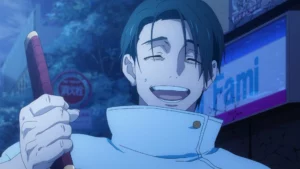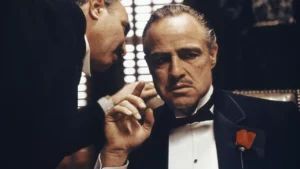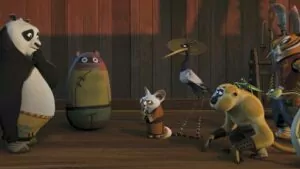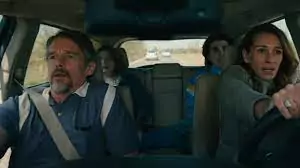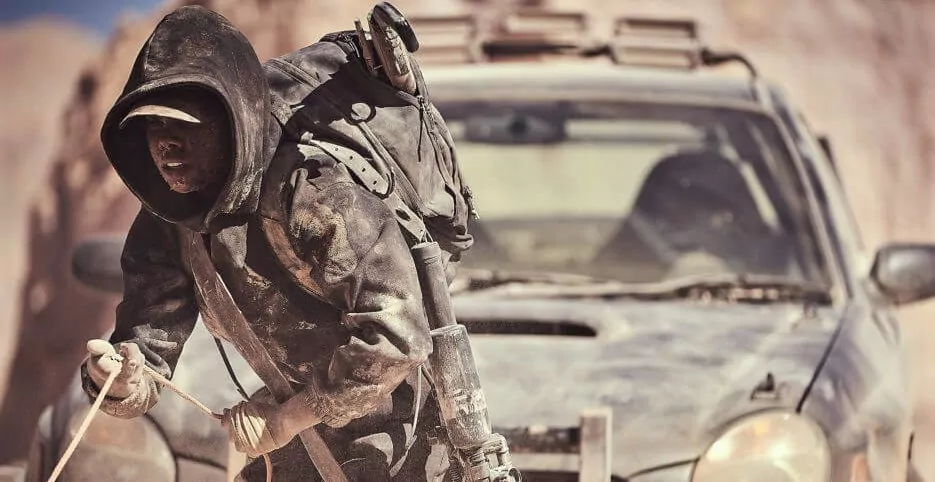
Firebite is an AMC+ original vampire fantasy series. It brings in a unique concept, putting a spin on the vampire genre by combining it with aspects closer to reality. The series follows two Indigenous Australian hunters as they battle the last colony of vampires hidden in the opal mines in the middle of the South Australian desert.
Rob Collins, Shantae Barnes-Cowan and Yael Stone are part of the lead cast of the show. Here they talk about working on action scenes, the show’s approach on indigenous Australian history, among other things.
Q. Can you start by talking about what it was that first attracted you to the show, and why you wanted to do it?
Rob Collins: I can take that first. Warwick Thornton. I’d always wanted to work with him. I got a small taste of it on a series, an Australian series called Mystery Road. And he’s kind of just one of our go-to, amazing directors. So there was that and ‘vampire killer’. So those two things combined, I just had to do this project.
Shantae Barnes-Cowan: I auditioned for it at the start of the year, on another project, and I met with Warwick. That was my first time meeting him. And he sort of like, gave me a little inside of it. And it sounded really cool. So I was up for it. And I heard it was gonna be really big. So yeah, I got really excited. And yeah, I still can’t believe I won the role of Shaneka, because I bet hundreds auditioned for it, but I’m happy I did. Because you know, it turned out really fun and deadly.
Yael Stone: I guess I should say that we’re so lucky that Shantae got the role as well, because she’s incredible in the show. And the scripts that I was sent were just so fascinating. I just felt like we have not done this before. We’ve not addressed Indigenous Australian history, and a kind of violent colonial Australian history in this way before, using a vampire metaphor before and I think it’s extraordinarily creative. And it’s a really clever way of telling that story. And it’s got heaps of joy and laughs and fun. And then it’s got this incredibly powerful and incredibly serious metaphor as well.
Q. The show is rather ambitious and probably the first of its kind in its take of addressing colonial exploitation and native history and racism, while combining it with elements of fantasy, like vampires and monster hunters. So I wanted to know, what are your thoughts on it?
Rob Collins : Speaking of fantasy, I mean, growing up in Australia, you are told a particular version of our colonial past. And that was certainly true for me. And as an adult, you get time to reflect on things. And as an indigenous man in Australia, what that kind of really means. So, I’d have to say for me, in particular, that sort of revelation came through in my mid-twenties. And now being a forty-year-old man with kids of my own who are indigenous. I think it’s important to give them a sense of, well, a true sense of their place in this country. And I think at the heart of it as well, that’s what Warwick is trying to tackle in this series. So for me, it was vitally important. I mean, I made the quip earlier that it was working with Warwick and vampire hunting and all that kind of stuff that drew me to the role but I think this idea of rewriting history in a sense, I found really cool. Because when you talk about fantasy, there are a few fantasies that we as everyday Australians accept as fact. And in fact, it’s such a powder keg here in Australia that I think the series is really going to agitate in a good way. You know, and like the best series do get you to think about, well, what is your accepted version of this country and your place in it and your family’s place and your forebears place. And I think it’s a really timely discussion to have. And as genre does in its best way, it’s kind of subversive in that way, because it’s killing, its vampires, it’s action, it’s fun, it’s lively, it’s explosion, it has amazing sets. But then we’re able to snake that key messaging amidst all the chaos.
Shantae Barnes-Cowan : The history of our culture and our land, and getting invaded by the White men, I think it’s important to tell because, you know, us Black fellas, we’re strong about that, it’s our past, it’s our history, and it’s our culture. And we, as a culture, are proud to tell it and show it to the world. I think it’s pretty cool to show in this way. For me, it’s the vampires feeding on Black people’s blood. It’s like, that is an invasion, for our culture. That’s how I see it. And it’s just cool to tell it that way. I think the world is gonna love it and our culture and our story.
Yael Stone: I don’t know if I could answer the question any better than that. So maybe I’ll take a different angle. You know, it’s also fascinating to think about it landing in an American audience first and then across the world, potentially. And, you know, I lived in the States for seven years, and I always felt there was this strange absence of a discussion in the mainstream media about the Indigenous stories of the States? And I wonder, you know, Rob said, maybe it’ll be a bit of a powder keg for Australia. Maybe it sparks discussions elsewhere as well. Because these fantastical histories exist everywhere. And the more we face them, the more we can address some of the healing that needs to happen. So yeah, maybe we’re putting a little match to the powder keg.
Q. What training did you have for the fight scenes?
Rob Collins : Our training for the fight scenes, oh well, actually it was the first week, Shantae, wasn’t it? We got in, they made us do awful things like push ups and sit ups and jumping around. Yeah, it was a lot. We had an intense week of personal training and rehearsal.
Shantae Barnes-Cowan : We had the personal training first, and then we went straight to rehearsals and reading. Yeah, it was crazy.
Rob Collins : And we had a really insane team of stunt people, wonderful people but super across what we needed to do, and we were in the lucky position of getting in really early when we had a fight sequence coming up. So in the early days, at least, we had lots of preparation to be able to knock those things down. So it was a sort of coordinated approach of getting generally fit, and working through choreography for the big fight sequences.
Q. Is there anything that you learned about yourself either as a person or an actor while working on this project that you didn’t know before you started?
Yael Stone: When you sign on for a project, sometimes you don’t know what you’re in for, because the story is yet to fully unfold in terms of script. And in a way, coming back to the previous question, that physical element of embodying things and embodying kind of like those violent situations, it can be quite confronting. I’ve never done a lot of that kind of stuff before. So embodying some of the more physical elements was a bit of a surprise for me. And a surprise, in terms of that, you don’t know what you’re signing on for. And then, in the actual moment, when you find yourself in all kinds of wild situations like, we were down in these crazy opal mines, these actual opal mines. And you catch yourself and you think, My Lord, I would never do this in my real life. But suddenly, you’re there and getting the shot is the most important thing. And you wouldn’t be anywhere else but down at the bottom of that opal mine.
Rob Collins: Just building on that idea of uncertainty that I think is probably the biggest thing, as an actor and a person, that I’ve learned through this experience. We moved at such a rapid pace. And I don’t think I’ve ever been this busy in my life, I spent most days on set. So being able to sort of have to trust in what preparation you’ve done and trust in other people’s vision, handing over a bit of the control to these wonderful creatives was a big learning curve. For me, I’m someone who’s really cerebral. I mean, I like to think about things a lot when it comes to performance and character. I wasn’t afforded that kind of opportunity on this, in a good way. So embracing the chaos and accepting that the work is there. And relinquishing some of that control to these fabulous creatives was a big learning curve for me. And one that I’ll take, and I’d love to take into every project because, while it was terrifying, it was also very freeing and very liberating.
Shantae Barnes-Cowan : For me, I feel like every day was learning, because I don’t know, like, I just haven’t had as much experience. It was just so good being around Rob, and Yael, and all the other older experiences. To learn from them is really cool. And I feel, it’s still learning to this day. Still gonna keep learning. I haven’t had a job this long, as well. So it was challenging as well. You know, being away from family and learning about being by yourself as a teenager and just keeping in that positive mental state was learning for me. And yeah, just meeting everyone onset and like, the big crew and cast. I feel like that was one of my best learning experiences, I guess. But yeah, I learned a lot on this job.
Yael Stone : It’s worth saying as well that Shantae also graduated high school while shooting. It was amazing to watch her juggle everything, and learning everything and doing all that independent work of living away from your family, plus school, plus this huge job. She did an incredible job.
Rob Collins: Yeah, I second that. She had her homework in the makeup trailer most mornings. It was incredible.
Q. Based on the initial sketch or outline, what attracted you most or impressed you most about your characters?
Rob Collins : I’ve done mainly TV in Australia and my characters are very straight, steady and contained, they have it together to some certain degree. And Tyson was really, I think I can say it’s the most fun I’ve had with a character because he’s anything but that. So strangely, it feels like in terms of my film persona, it’s really different. But my children…especially my oldest girl, has seen some of the show, just rough scenes, and says that it’s oddly how I am at home. So, Tyson, there are elements of him that are closer to how I am in my private life, if not necessarily my public face. So it kind of drew that out of me, which is kind of a fun thing. And I think, looking at the character off the page, it’s that stuff that I connected to, you know. He’s fun, He’s silly. He has a very silly relationship, well, silly and serious relationship with Shameka, which reminded me a lot of my own relationship with my daughters. So yeah, he’s chaos, but he’s a lot of heart as well. So it felt really familiar to me.
Shantae Barnes-Cowan : I felt like my character found herself more at the end of the story. In the start, I was still quite strong, and I was smart, and tech savvy and all that, but I wasn’t really powerful. I feel I was more powerful in the end, like I had to go through a journey to really find that. Find that in myself. I don’t know, I love my character. There is just something that’s unique that not many people would expect from a teenager. And obviously Tyson has taught her growing up how to fight vampires. That’s pretty cool. She uses that in the classroom, against classmates. She actually fights a lot at the school. So yeah, she definitely has some skills in life. And she’s strong and she’s smart.
Yael Stone : I think it’s taken me a while, but I can say it out loud, I think I’m a character actor. And Elli, for me, is a real kind of character role. And it’s probably not there in those first three episodes. So it’s kind of hard to talk about her, given that you have seen so little of her journey, I guess. And I don’t want to give anything away. So let me give a silly answer. She has an accent and I like accents. So that’s why.
The Movie Culture Synopsis
Firebite premiered on Thursday, December 16th on the AMC+ on the premium streaming bundle, with new episodes to follow every Thursday.
